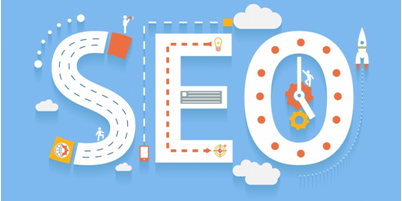You have a website, but that is not enough, it also needs to be optimised for search so that it appears in the top results provided by the search engines. As a beginner you must know and understand that there is no short cut to getting your website to rank on the first page of a Google, Yahoo or Bing. These search engines function on the basis of very complex algorithms and it takes sustained effort to crack the code.
Nevertheless, there are certain basic rules you can follow to optimize your web site and provide the search engine bots with the necessary signals.
1.Page titles – Page titles are a very important aspect of SEO. The most important characteristics of a page title are:
• Each page needs to have a unique page title that accurately describes the page’s content.
• It should be concise and help the user understand what the page is about.
Home page title: The title for your homepage can include the name of your website/business and other important information like location of the business or services offered. For example:

Post/other pages title:
Title of other posts/pages of your web site should accurately describe what the page is about and be attractive for the searcher. For example:

2.Page Description – A page’s description meta tag is also very important. It gives users, Google and other search engines a summary of what the page is about. The guidelines for writing a good description are:
• Always provide a unique description for all pages, posts, products of your website.
• Keep the size between 150-160 characters.
• Avoid repeating the title in the description
• Don’t add too many keywords
• Try to use the description as a way to ‘advertise’ your page to the reader so that they click on your title and visit the page.
3.Permanent link structure
The permanent link structure is a term used to describe the format of URLS for pages (categories/tags) or individual posts of a web site. It is shown in the browser address bar and in the search results (below the page title).

Tips for SEO friendly link structure
• The URLs should be simple and easy to understand for search engines and users
• Avoid lengthy URLs with unnecessary information
• Use hyphens to separate words
• Use words that describe what the page is about, but avoid excessive use of keywords
Bad URL structure – http://www.example.com/UK/123213/5005.html
Good URL structure – http://www.example.com/social-media-news
4.Fast loading page – The time taken by a page to load time can affect your search ranking, so get rid of any non-essentials that slow down your website. These may include music players, large images, flash graphics, and unnecessary plugins.
5.Keywords in images – Include words that reflect your site topic in the image title, description, and alt attributes. Also, re-title the file name if it doesn’t reflect your main keywords (e.g. SEO-tips.jpg instead of d1234.jpg).
6.Internal Links – They refer to links in a page that lead to other pages within the website for additional information, and not external links. Internal linking is a very important factor for web site SEO, and the rules to it are quite simple:
• Link related articles together either by using keyword anchor text or by using the full article title
• Make sure that the links are useful both for the user and easy to understand by search engines.
• An internal link should help the user navigate the site better and not just be optimized for search engines.
• Avoid terms like ‘click here’ or ‘[..]’ for internal linking.
• 4-5 internal links per page are enough, create more only if absolutely necessary
7.A mobile friendly website – A significant number of searches performed each day are through mobile devices, and this number is steadily increasing, especially with respect to e-commerce. Keeping this in mind, it’s imperative to have a website that functions well on a mobile device as well. This ensures you don’t turn away visitors checking your website from a smartphone or tablet.
8.Content – Good content is a great way to attract visitors and get a better ranking in search results. Your content should be relevant, original and helpful to those visiting your website. Always prioritize quality over quantity. Also, having fresh content is an incentive for visitors to come back and for search engine bots to visit and crawl your website more often.
9.Linking to other websites – You can do this by including a blogroll, link list, or resources page on your website. Be careful when doing this, as each outbound link is a “vote” for another site. However, if you do it well and people click your links; this tells search engines you are a trusted authority on your particular topic.
Additionally, you can have other websites link to yours through creating great content and authoring guest posts, as those inbound links greatly help in SEO.
10. Stick to your domain name – The age of your URL is a factor in your site’s search ranking, so be patient. If you’re launching a new blog every six months, you’ll never see your site get the value it deserves.
These are just a few basic tips to get started on having a website that is optimized for search

